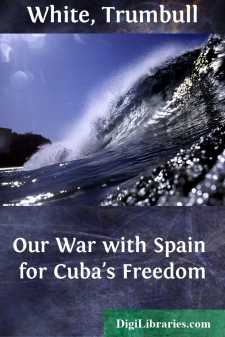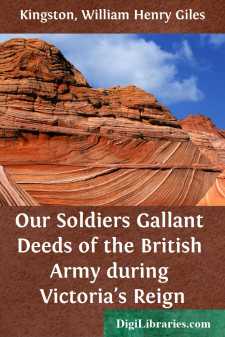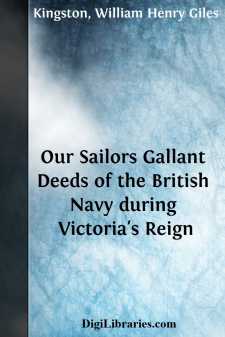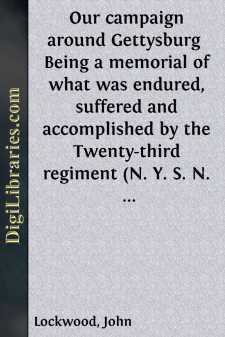History
- Africa 30
- Americas (North Central South West Indies) 50
- Ancient 68
- Asia 58
- Australia & New Zealand 8
- Canada 41
- Caribbean & West Indies 1
- Civilization 20
- Eastern Europe 12
- Europe 310
- Expeditions & Discoveries 60
- General 77
- Historical Geography 1
- Jewish 9
- Latin America 3
- Medieval 8
- Middle East 13
- Military 248
- Revolutionary 8
- Study & Teaching 5
- United States 353
- Western Europe 56
- World 13
History Books
Sort by:
by:
R. Lewis
Chapter One he end of August, 1914, found me following my usual employment as second mate on a small steamboat plying between St. John's, Newfoundland, and various stations on the coast of Labrador. The news from the front aroused my patriotism, and though my captain, who was a Britisher through and through, strongly urged me to remain with him because of the great difficulty of securing another...
more...
At the beginning of the national era the internal commerce of the United States gave small promise of the tremendous development it was to undergo during the ensuing century. There was as yet too little differentiation of occupation to give rise to a large interstate trade in native products, and the proximity of the greater part of the population to the seacoast made it cheaper and more convenient to...
more...
by:
Coningsby Dawson
I The American Troops have set words to one of their bugle calls. These words are indicative of their spirit—of the calculated determination with which they have faced up to their adventure: an adventure unparalleled for magnitude in the history of their nation. They fall in in two ranks. They tell off from the right in fours. "Move to the right in fours. Quick March," comes the order. The...
more...
by:
Trumbull White
Information concerning the island of Cuba has been of an exceedingly unsatisfactory character until the search-light of American inquiry was thrown upon it from the beginning of the war for Cuban liberty early in 1895. Although our next-door neighbor to the south, with a perfect winter climate and a host of interesting and picturesque attractions for travelers, tourists had been comparatively few,...
more...
The Afghan Campaigns—1839-42. In 1809 the reigning Ameer of Afghanistan, Shah Soojah-ul-Moolk, was dispossessed of his throne and an exile. Runjeet Singh, the Sikh ruler of Punjaub, plundered and imprisoned him at Lahore, and obtained from him the famous Koh-i-noor, the great diamond which is now among the crown jewels of Great Britain. Eventually Soojah escaped from Lahore and became a pensioner of...
more...
Our Sailors. “Let fall the topsails, hoist away—up anchor, round goes the capstan—sheet home—haul taut the braces! and away we glide, to prove to our countrymen that British sailors have not been sleeping on beds of roses for the last quarter of a century since her gracious Majesty Queen Victoria came to the throne.” So wrote our author some forty years ago. “Up anchor, full speed ahead,”...
more...
by:
Lawrence Perry
CHAPTER I First Experience of Our Navy with the German U-Boat—Arrival of Captain Hans Rose and the U-53 at Newport—Experiences of the German Sailors in an American Port—Destruction of Merchantman by U-53 off Nantucket—Our Destroyers to the Rescue—Scenes in Newport—German Rejoicing—The Navy Prepares for War How many of us who love the sea and have followed it to greater or less extent in...
more...
by:
John Ruskin
PREFACE. The long abandoned purpose, of which the following pages begin some attempt at fulfilment, has been resumed at the request of a young English governess, that I would write some pieces of history which her pupils could gather some good out of;—the fruit of historical documents placed by modern educational systems at her disposal, being to them labour only, and sorrow. What else may be said...
more...
by:
John Lockwood
PREFACE. If any one, taking up this book casually, should wonder why it was written, it may suffice to observe that "Gettysburg" is probably destined to mark an Epoch of the Republic;—as being one of the very few decisive battles of the Great Rebellion. Accordingly, whosoever took any part in it may hope to share its immortality of glory. But, says one, the militia were not engaged in the...
more...
CHAPTER I. In accordance with the Proclamation of President Lincoln, calling out troops for three years, or during the war—which in future history will be better known as the great Southern Rebellion—a Regiment of Light Artillery was at once organized in this State, and the command given to Col. James Barnett, of Cleveland, than whom no person was more qualified for the position. For many years...
more...











